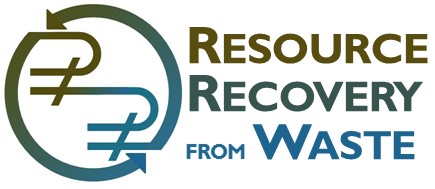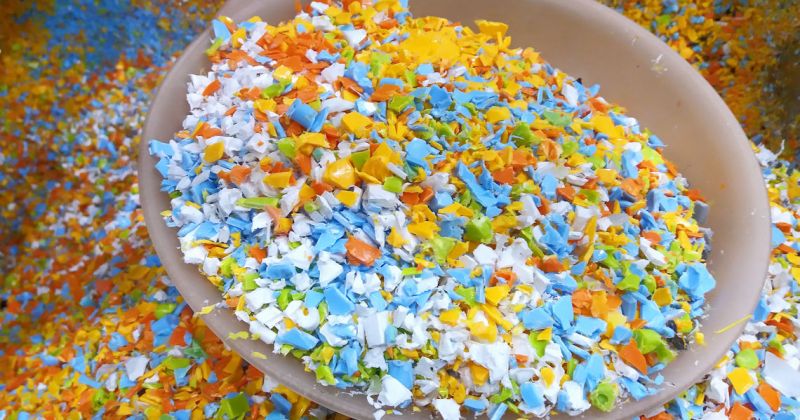Complex Value Optimisation for Resource Recovery from Waste
University of Leeds.
CVORR is a novel approach that combines scientific and engineering methods with a socio-political narrative grounded in the systems of provision (sop) approach and seeks to assess how value is created, destroyed and distributed in resource recovery from waste (RRfW) systems.
In CVORR ‘value’ has a wide meaning, referring to measurable benefits (creation of positive value) and impacts (creation of negative value, or loss of value) in the environmental, economic, social and technical domains. Considering all these domains – and potentially more e.g. governance – in the evaluation of interventions, allows for a whole-system assessment and provides a comprehensive analytical method for calculating and communicating multi-dimensional outputs, essential to support informed decision-making.
Through this novel way of assessing RRfW systems, CVORR can provide guidance as to where successful interventions can be made, and indicate how changes in the political and legal framework can be instrumental in the better management of resources at different levels of the economy, and the promotion of circular economy.
The CVORR project is in collaboration with and supported by (in alphabetical order): ARUP, British Geological Survey (BGS), Chartered Institution of Wastes Management (CIWM), D-Waste, DcW, EMG, Freeland Horticulture Ltd., International Solid Waste Association (ISWA), Knowledge Transfer Network (Environmental Sustainability), Link2Energy, NFU, OECD, PlasticsEurope, Ramboll, Resource Association (RA), Technical University of Vienna (TU Wien), Technical University of Denmark (DTU), WRAP.
Further project outputs can be accessed via the CVORR ResearchGate page.
Publications
- Millward-Hopkins and Purnell (2019). Circulating blame in the circular economy: The case of wood-waste biofuels and coal ash. Energy Policy. 129, 168-172. doi:10.1016/j.enpol.2019.02.019, Open Access.
- Millward-Hopkins et al. (2018). Resource recovery and low carbon transitions: The hidden impacts of substituting cement with imported ‘waste’ materials from coal and steel production. Global Environmental Change. 53, 146-156. doi:10.1016/j.gloenvcha.2018.09.003, Open Access.
- Hahladakis and Iacovidou (2018). Closing the loop on plastic packaging materials: What is quality and how does it affect their circularity? Science of The Total Environment. 630, 1394-1400. doi:10.1016/j.scitotenv.2018.02.330, Open Access.
- Iacovidou et al. (2018). Quality of resources: A typology for supporting transitions towards resource efficiency using the single-use plastic bottle as an example. Science of The Total Environment. 647, 441-448. doi:10.1016/j.scitotenv.2018.07.344, Open Access.
- Hahladakis et al. (2018). Post-consumer plastic packaging waste in England: Assessing the yield of multiple collection-recycling schemes. Waste Management. 75, 149-159. doi:10.1016/j.wasman.2018.02.009, Open Access.
- Iacovidou et al. (2018). Technical properties of biomass and SRF co-fired with coal: Impact on multi-dimensional resource recovery value. Waste Management. 73, 535-545. doi:10.1016/j.wasman.2017.07.001, Open Access.
- Hahladakis et al. (2018). An overview of chemical additives present in plastics: Migration, release, fate and environmental impact during their use, disposal and recycling. Journal of Hazardous Materials. 344, 179-199. doi:10.1016/j.jhazmat.2017.10.014, Open Access.
- Millward-Hopkins et al. (2018). Fully integrated modelling for sustainability assessment of resource recovery from waste. Science of The Total Environment. 612, 613-624. doi:10.1016/j.scitotenv.2017.08.211, Open Access.
- Iacovidou et al. (2017). A pathway to circular economy: Developing a conceptual framework for complex value assessment of resources recovered from waste. Journal of Cleaner Production. 168, 1279-1288. doi: 10.1016/j.jclepro.2017.09.002, Open Access.
- Iacovidou et al. (2017). Metrics for optimising the multi-dimensional value of resources recovered from waste in a circular economy: A critical review. Journal of Cleaner Production, 166, 910–938. doi:10.1016/j.jclepro.2017.07.100, Open Access.
- Iacovidou et al. (2017). A Parameter Selection Framework for Sustainability Assessment. Sustainability. 9(9), 1497. doi.org/10.3390/su9091497, Open Access.

